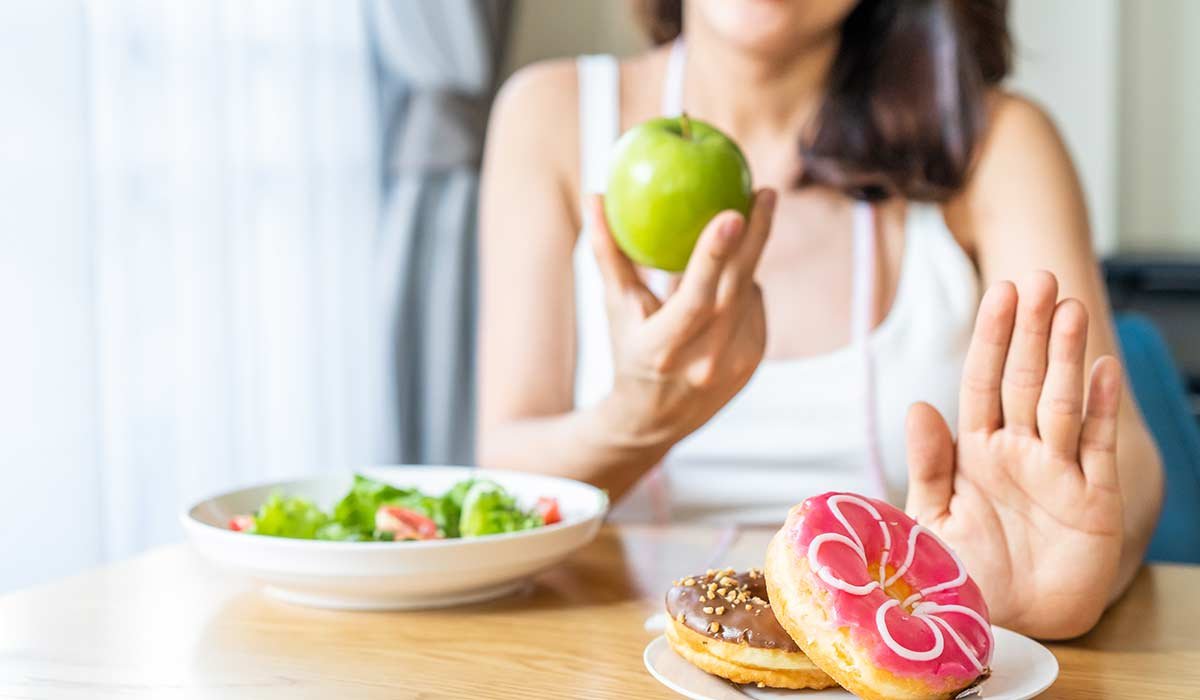The Science Behind Not Wanting To But Yet Eating Unhealthy Junk Food
We hear so often, ” I want to stop eating junk food, it is bad for my health, yet I open a packet of chips to have few pieces but finish up the whole packet. And this happens every day” Well here is a short article I have written for you which may be of help to you.
First, what is junk food? Food that is highly processed and refined hence stripped away of vital nutrients like vitamins, minerals, and phytonutrients and with lots of added unhealthy white salt, white sugar, and cheap oils or trans fat. They are calorie-dense but zero nutrients foods. These are foods that have been transformed by processing from their original state as provided to us by nature into a state which the body does not even recognize as a food particle and in fact can mount an immune attack against it!
Like insignificant emails are sent into the junk mail folder; similarly, junk foods should be deleted from our diets. We all are well informed nowadays about the adverse effects of these harmful foods, but yet we succumb to them and keep postponing our promises to stop eating them without any success. Let us examine and understand the psychology of being hijacked by these junk foods so that we can empower ourselves and overcome their seduction.
- The manufacturers know how to entrap us! They are marketed in beautiful, attractive packages, with celebrities endorsing them and are advertised on popular media and magazines. Often you will come across the most harmful products in medical or kid’s health magazines!
- Playing with words on the packaging, suggesting an illusion of health like vegan, organic, natural, cholesterol-free, or gluten-free, we are fooled into believing unhealthy foods to be healthy. Absolutely unhealthy salted potato chips fried in cheap harmful transfat oils can be passed off perfectly as vegan natural, cholesterol-free, and gluten-free.
- As per law, all packaged foods must come with ingredients and nutrients facts labels. But how many of us know how to understand these labels. Often the ingredient like added sugar is broken up and written in 4-5 different technical names to evade being listed on top of the ingredients list because, as per law, ingredients must be mentioned in the order of its weight. Ingredients of maximum weight should start at the top of the nutrients list.
- The packets usually are large, and the amount of food content in them is much less. Even if the big packages are equal in size to the content inside, cheap products will of course have more value for money, but they are harmful to health.
- Variety! Our brains love the variety, hence these foods are offered in fancy shapes, bright colors, and many tastes. Kids of course will be attracted to them.
- Fancy chocolate bars – which have every unhealthy stuff in it, but the main ingredient cocoa (chocolate) is just a tiny fraction. You put into your mouth, and it melts away, no effort required—no need to chew. The taste buds get an overdose of salt and sweetness satisfying your cravings and giving you an instant burst of energy from refined sweetness. It’s just like a roller coaster ride, a burst of glucose, and then an insulin spike leaving you drained out after some time and want more of the junk food. The cheap unhealthy, highly processed oils give you a feeling of satiety but at an expensive cost of compromising the delicate membranes of all your body’s cells.
- Precooked meals with an expiry shelf life over years for busy people are a great hit, but we must realize the moment a natural vegetable or fruit is plucked off from its source with connects it to nature it gets spoiled and loses it vital energy in hours or few days at the most. So are these packaged ready meals really healthy?
- To maximize profits, natural foods that are prone to spoil fast are refined and artificial preservatives added to increase their shelf lives. When refining we loose all the important micronutrients
Once we understand the above scenario, the marketing gimmicks, and traps, we can strategize smarter to regain back our natural healthy eating habits. Mentioned below are a few tips to guide you.
- Don’t stock or keep unhealthy foods in your pantry. If they are not handy you cant eat them! When going grocery shopping, have control and avoid buying junk stuff. Buy whole foods, not broken foods. Whole means what we get directly from nature like vegetables, fruits, nuts, and seeds. Once these foods are chemically altered by refining, processing, adding other ingredients, it is like it has been broken or damaged. Sugar cane is a whole food; white sugar is broken food. Healthy whole foods may be expensive, but it is an investment for your future health. Visualize the costly bills and torture of landing up in hospitals by eating artificial foods. Do celebrities really eat what they endorse?
- Follow healthy eating hygiene. Keep your attention on food when eating. Avoid TV or mobile in one hand. Chew slowly and savor all the taste natural foods provide us. This way, your digestion is improved, and you get to absorb all the healthy nutrients and even the bio-energy they provide us.
- Analyze and identify the triggers, which make you go for the readily available food, which often is junk.
Is it “comfort eating” – Am I hungry or just eating to comfort myself. Loneliness, boredom can be reasons to start binging on readily available junk food. - Identify any other feeling which inclines you to want to eat? Are you self-rewarding yourself with foods the way smokers may smoke to relax?
- What settings make you feel at ease and prompt you to eat more snacks?
- Do I tend to eat more when I am with certain people?
- Do I lose control at certain social events, meetings, or gatherings and start binging?
Analyze the above patterns and gently replace them with new eating patterns that get wired in the brain. Gradually the new eating patterns become natural. Once we see positive health results from our new eating habits, we are motivated to improve ourselves more happily. When we are happy, our brain releases more happy neurotransmitters like GABA, serotonin, oxytocin, etc. Please note these neurotransmitters were earlier released by eating junk food, but now I am deriving the benefit of these brain chemicals by eating healthy, beneficial foods. This is the shift we want.
- When having a desire to eat unnecessarily, try replacing the desire with a walk, music, meditation, or any hobby of yours.
- Try self cognitive therapy that is talking to yourself about the benefits of eating healthy instead of harming oneself by binging or eating junk.
- Use logos or visual images to help you out. When you have the urge to have an unhealthy snack visualize a speeding ambulance, then shift this image with yourself as a lean and fit person jogging away full of stamina if you would eat something healthy instead.
- Having a sweet craving, instead of a cookie have few dates or sweet fruit.
- Try reducing the quantity of undesirable foods and increase the quantity of healthy foods.
- Most of all it is imperative you go slow and be kind to yourself. Don’t push yourself too hard for the shift.
- Have no guilt; sustainable transformation takes time – be honest and give yourself time to adapt. Be non-judgemental to self, accept self, and don’t compare with others. Support and reward your self, soon the change of your eating habits will become a natural lifestyle for you.
This statement has not been evaluated by the Food & Drug Administration. This product is not intended to diagnose, treat, cure, or prevent any disease.

